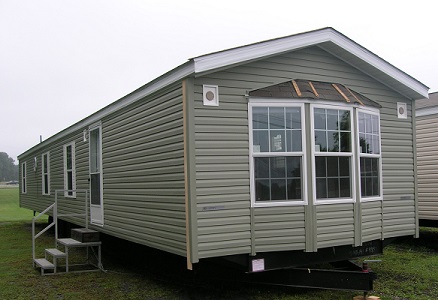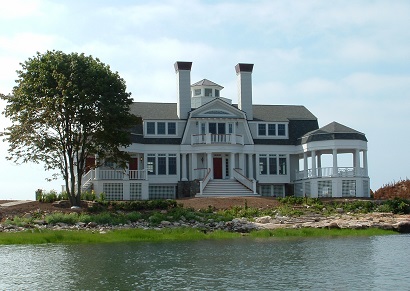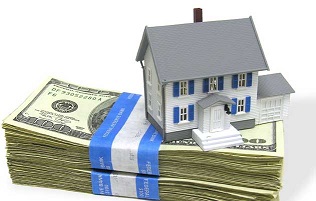 To better understand modular homes, learn the truth behind the most common misconceptions about them.
To better understand modular homes, learn the truth behind the most common misconceptions about them.
Modular construction is by no means a new industry. It has been around since prefabricated homes got their start, survived through all sorts of ill-informed iterations that gave it a bad name, and has finally arrived at the forefront of new housing innovation. In order to learn more about modular homes, let’s take a look first at what they are NOT.
A Modular Home Is NOT…

This is NOT a Modular Home
A Trailer Home
Because modular home fabrication is referred to as “manufacturing” many people assume that modular homes are the same thing as manufactured homes. They are not! Modular homes are also not HUD homes, mobile homes, doublewides, or trailer homes. The most important distinction is that while modular homes have to adhere to the highest building standards, the other types of homes only have to be HUD certified. Learn more about the difference between modular and manufactured homes here.
A Modular Home Is NOT…

This modular home on Long Island Sound survived Hurricane Sandy when others around it were literally split in half.
Less Safe
Often, because people confuse modular homes with manufactured homes, they think that modular homes are shoddily constructed. This could not be further from the truth. Modular homes are fabricated in a factory to even higher building standards than most site-built homes because each module has to withstand being lifted on to the back of a flatbed truck and being driven to the construction site, sometimes hundreds or thousands of miles away. In fact, FEMA says that modular homes are more likely to be able to safely withstand hurricane level conditions.
A Modular Home Is NOT…
Different Looking From Site-Built Homes
Some people shy away from modular homes because they don’t want other people to know that they bought modular. Setting aside the fact that you should actually want people to know that your house is modular because it’s actually a more ecologically friendly, financially sound, and responsible way to build, modular homes look no different from site-built homes.
A Modular Home Is NOT…

If a price sounds too good to be true, there’s probably some costs that aren’t being included!
50% Less Expensive
While modular homes are certainly less expensive to build than comparable site-built homes, the myth that is often perpetuated by less-than-honest modular manufacturers is that you can save up to 50% on the cost of building a home. This is sometimes thought to be the case because a manufacturer will give quotes based off of the cost of fabricating the home, not including costs for delivery, set-up, buttoning up, finishing work, or site work – all of which add significant expenses to your final bill. You can actually expect to spend anywhere from 10% to 20% less on your home if you build modular.
You can expect to spend 10%-20% less if you build your home with modular construction
A Modular Home Is NOT…
Harder To Maintain
Where this impression is coming from I couldn’t begin to understand, but some perspective modular home buyers seem to think that modular homes are less expensive to build, but cost more in the long run because of higher maintenance and upkeep costs. Modular homes actually cost significantly less to maintain because of the superior construction quality. Modular homes are less likely to experience costly maintenance issues and because of more exact factory construction the cost of heating and cooling the home is lower.
A Modular Home Does NOT…

Modular homes can have a higher resale value because they tend age better than site-built homes
Depreciate In Value
Likely another holdover from thinking modular and manufactured mean the same thing, some people think that modular homes depreciate in value, meaning if you want to resell your home, you’ll get less than it cost to build it. While this is true for manufactured homes, modular homes increase in value just like a site-built home. In fact, due to having fewer maintenance issues, they are often in better shape than their site-built counterparts when the time comes to sell the home.








